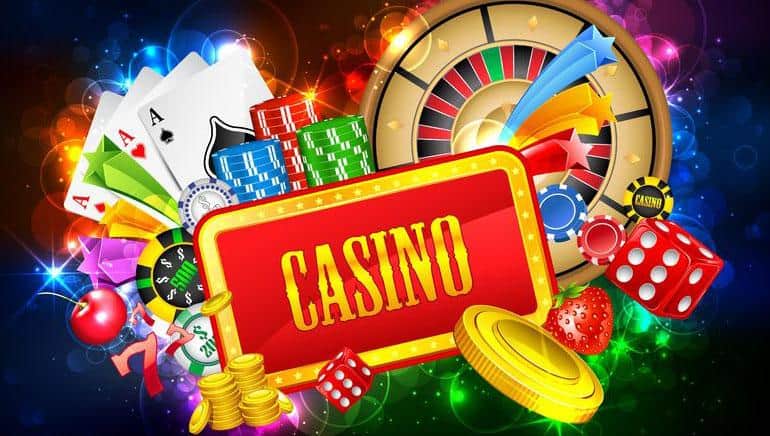
Casino activities have fascinated enthusiasts for decades, pulling them into a realm of thrill, fortune, and prosperity. From the sparkling lights of slot machines to the intense nature of card tables, these games offer a distinct blend of amusement and risk. However, beneath the facade of this sparkle and glamour lies a sophisticated interplay of math that influences every result and choice made within the gambling establishment.
Comprehending this link between gaming activities and math not just enhances the player’s journey but can also help gamblers make wise selections. Whether you are a casual punter or a avid enthusiast, recognizing the math concepts at play can provide important insights into chances, odds, and tactics, ultimately influencing how one deals with these games of luck.
Statistical Likelihood in Gambling
In the sphere of gambling games, mathematical likelihood plays a vital role in determining outcomes and informing gambler choices. Each game has a specific set of rules and a specific likelihood framework that shapes its mechanics. For instance, in games like roulette, players must grasp the probabilities of choosing a particular number or color. The likelihood of certain events occurring can be computed, and this knowledge can significantly influence betting tactics.
Gambers also need to be informed of the casino advantage, which is the mathematical advantage that gambling establishments hold over gamblers in the long run. This advantage differs across various activities. In blackjack, skilled players can use tactics to reduce the casino edge to as low as one %, while in activities like slots, the house advantage can be substantially larger. Comprehending the house advantage allows gamblers to make educated choices about which games to participate in and how much to wager.
Moreover, likelihood is fundamental in the concept of risk versus gain in betting. Each bet carries a particular risk level, and players must evaluate the possible payout against that danger. Games like poker require players to not only assess the odds of their own showing winning but also to evaluate the likelihoods of their opponents’ showings. By utilizing statistical principles to their strategy, gamblers can enhance their odds of success and participate more strategically in the exciting realm of casino activities.
Anticipated Value in Gambling Games
When talking about casino activities, one of the fundamental concepts rooted in mathematics is the expected worth. This numerical metric assists players grasp the potential outcomes of their bets over time. In simple terms, anticipated value (EV) determines the average amount a player can expect to win or suffer per bet if they were to play the game repeatedly. Each game has its unique EV, affected by the odds and the casino advantage, which indicates the benefit that the gambling establishment holds.
For example, think of a activity like the roulette game. The anticipated value can be calculated based on the particular bet placed. If a player bets on a individual number, the return is 35 to 1, but the actual odds of winning that bet are 1 in 37 (in Euro roulette). This leads in a detrimental expected value, showing that, on average, players will lose money over time when playing this kind of bet. Grasping this idea allows players to make better informed decisions about which games and wagers may be more favorable.
Moreover, the investigation of expected worth can lead to improved money management. Gamblers who understand the math behind their games are often able to set realistic goals. By acknowledging their possible deficits and gains, they can adjust their playing strategies accordingly, which may improve their overall gambling experience. As a result, expected value serves as a critical resource for both novice and seasoned gamblers to navigate the often volatile character of gambling games.
Tactics and Odds: The Arithmetic Behind Success
In gaming establishments, comprehending the chances is essential for gamblers looking to boost their opportunities of winning. Each game has its own distinct set of chances that establish successful results, and these figures are often found in the game’s guidelines or reward charts. For instance, in games like 21, players can enhance their probabilities through methods such as tracking cards, which is based on mathematical principles to gain an advantage over the establishment. By acquainting themselves with the probabilities, participants can make more educated decisions on when to place bets and when to quit.
Moreover, the idea of average value plays a major role in gaming tactics. Average outcome assesses the typical outcome of a bet over a period, allowing participants to assess whether a particular wager is justifiable taking. For instance, video slots have a fixed return percentage, which can indicate the typical return a participant can anticipate on their bets. By selecting activities with greater average outcomes, players can reduce the house advantage, enhancing their potential returns in the long run.
Finally, successful gamblers often employ a mix of luck and calculative tactics to enhance their gaming experience. link 789win While chance is unpredictable, managing a betting strategy based on mathematical insights can lead to more favorable outcomes. By employing techniques such as budgeting and picking games, players can leverage mathematics to handle the unpredictable nature of casino games, making the most of their time and resources at the gaming tables.
